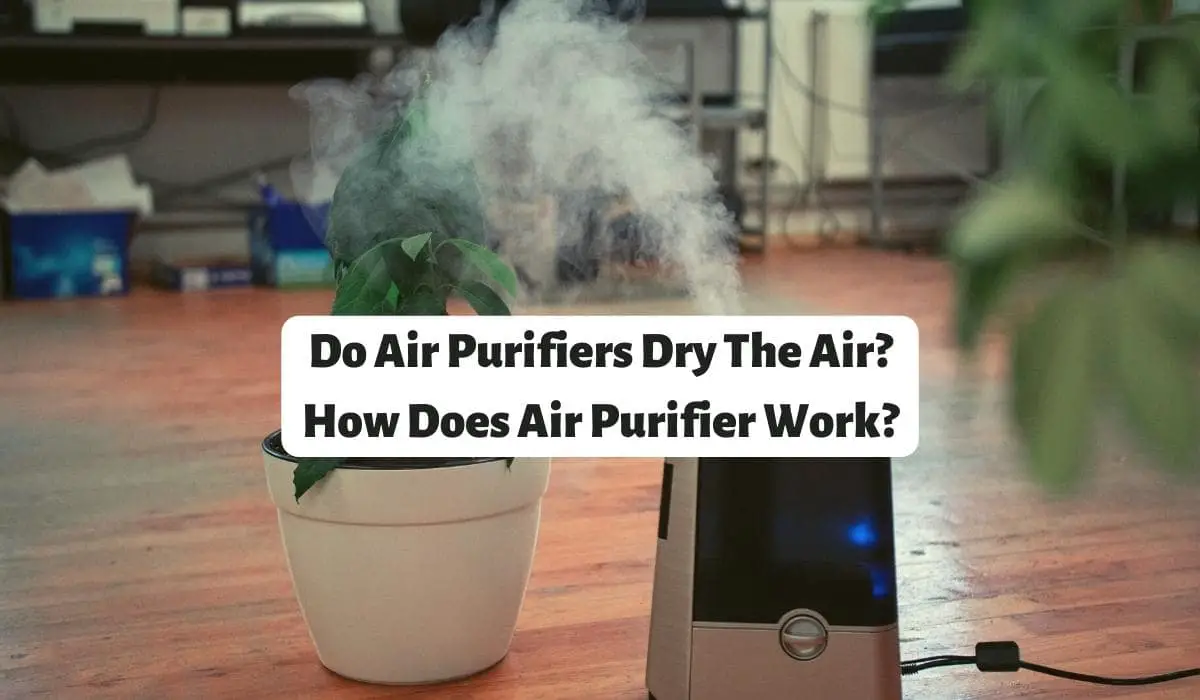Last Updated on May 3, 2024
Due to over-pollution in the air, the graphical line of air purifier demand is going higher and higher. Air purifier helps to purify air through its filter. But do air purifiers dry the air?
Well, the answer is no. Air purifiers don’t dry the air. When you find your nasal path or sinus being frequently irritated, that’s your cue to take a look at the filter and change it if necessary. Here, we will talk about air purifiers, their working process, and more to let you know the details.
Do Air Purifiers Dry the Air: An In-Detailed Explanation!!
As discussed earlier, air purifiers can’t manipulate the humidity of the air. Their main goal is to block polluting particles. And all it does is recirculate the air in the room to provide fresh air instead of the regular contaminated air.
So, an air purifier can not affect the humidity of any room. It can only purify the air. However, the average room humidity is 50%. And this amount is quite good for everyday comfort for the human body.
At a certain point, the air purifier’s filter must be changed. Once the time is over, the filter cannot block polluting substances properly in the necessity of holding back these particles. In this case, you must change the filter.
Besides, the air purifier becomes a significant source of pollutants that pollutes room temperature. These types of toxic materials can quickly impact our nasal path. Sometimes it can get into our body through breathing and irritate the mucous membrane sinusitis.
In this type of scenario, it can feel like the air is drier than usual. It causes a different feeling of humidity which is normal. But that doesn’t mean the purifier dries out the air.
How Does Air Purifier Work?
Air purifiers can be an essential household device if you suffer from allergies and similar problems, which is why it is important to know about the device. We have discussed this device in-depth for you to better understand it. Read more about it here –
Air Bypassing
Air enters into the void of an air purifier to initiate the process. It is sucked into the machine by a fan. The fan then passes the air through a filter made of fiber, paper, or mesh creating a bypass situation which is known as Air Bypass.
Capturing Unwanted Materials
Following this process of bypassing the air, the filter is now able to receive the air and block any unwanted particles and pollutants from passing through the filter. In addition, in some advanced air purifiers, UV rays are present to block biological impurities for cleaner air.
Pollutant Capturing
Most air purifiers can capture unwanted particles under 5 microns. Some filters are made to prevent viral spread and can capture elements under 2.5 microns in size. And that’s how it works to provide fresh air indoors.
How Often Should an Air Purifier Filter Be Changed?
The air purifier filter is not designed to purify the air for a lifetime. At one point, the filter will need to be changed and cleared out over time. By continuous recirculation of fresh air, the filter loses its quality to block pollutant substances.
The reason is the everyday dust in the air stored in the filter. If you don’t change, the filter cannot provide the same performance as it used to. That’s why the filter needs to be changed roughly about every 90 days.
However, if the air is relatively dirtier than usual or there are pets in the home, it must be changed roughly about every 60 days.
Also, if there are more people and pets in the house, then 45 days should be enough to take a look at the filters of the air purifier. Hence, it varies according to the situation. Some filters of air purifiers can be washed to clean, such as HEPA filters.
Frequently Asked Questions
- Do air purifiers help with humidity?
The main task of an air purifier is to neutralize the air from pollution and dust. An air purifier mainly sucks in all the air inside the machine and provides filtered air that is free from any unwanted elements.
That means the air purifier is incapable of altering humidity as the water vapor in the air remains the same.
- Which is better: a dehumidifier or an air purifier?
A dehumidifier is used to reduce or maintain the humidity of the air. It absorbs the water from the air and provides air with less moisture.
However, an air purifier can capture dust, mold spores, allergens, bacteria, and pet dander. It eliminates irritants and allergens and keeps the air clean.
- Is it OK to leave the air purifier on all night?
It is always a good decision to keep the air purifier in the room. As we know, an air purifier constantly purifies the air from the atmosphere, so you could leave it on overnight for cleaner and better air as you sleep through the night.
However, it will be a better option if the filter is changed before you are overdue to change. If the filters are regularly checked and changed, you can leave it on all night without any problems or worries.
Wrap Up
At this point, you know how an air purifier works in a room, which makes the context clear about whether an air purifier affects humidity or not.
But the burning question is, do air purifiers dry the air? The primary purpose of using an air purifier is to purify the air, not make the air dryer than regular.
So, keep these things in mind and use an air purifier accordingly!
